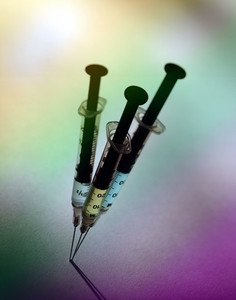On 23 July 2010, Momenta Pharmaceuticals and Sandoz announced that they had received approval from the FDA for their biosimilar version of sanofi-aventis’s (sanofi-aventis’s ) blockbuster blood thinning drug, Lovenox (enoxaparin sodium).
This comes as a major blow to sanofi-aventis who were not predicting FDA approval of the biosimilar due to the complex nature of enoxaparin. Lovenox is the leading hospital-based medication in the US and in 2009 sales were US$2.7 billion. However sanofi-aventis is trying to remain positive, adding that “Lovenox sales outside of the US have been growing faster than in the US and represent more than 40% of Lovenox total sales in 2009”.
Sanofi-aventis considering legal action
In a statement issued by sanofi-aventis the company expressed its concern about “potential implications for patient safety, since the product has not been subjected to extensive clinical trials to demonstrate its efficacy and safety”, adding that the Momenta/Sandoz version “has not been assessed on the basis of an extensive clinical programme showing proven and comparable clinical efficacy and safety to Lovenox”. The company also stated it will “assess the quality, efficacy and safety of the product and is considering all appropriate legal options”.
First biosimilar but others to follow soon
M-Enoxaparin, the biosimilar Momenta/Sandoz version, is the first biosimilar enoxaparin to be launched in the US and both companies are reported to be extremely pleased.
Global Head of Sandoz, Mr Jeff George, welcomed the FDA decision and said that “we are now looking forward to significantly increasing patient access to this vital medicine, by providing a high-quality, more affordable version".
President and CEO of Momenta, Mr Craig Wheeler, commented that “this is the first product based on Momenta’s technology platform to be approved, and demonstrates our ability to characterise and develop a complex mixture drug like Lovenox”.
The FDA action could get a legal challenge from US-based generics maker Amphastar, which has had an abbreviated new drug application (ANDA) pending at the FDA since 2003 for a biosimilar version of Lovenox. While Israeli generics’ giant Teva “believes that it has demonstrated to the FDA that its version of generic Lovenox meets their criteria and that its’ pending ANDA is approvable”.
References:
Momenta Pharmaceuticals Announces FDA Approval for First Generic Lovenox. 23 July 2010
Sandoz Press Release and News. Sandoz leads the way with first generic version of 'gold standard' anti-thrombotic Lovenox. 23 July 2010
Sanofi-aventis Press Release. Sanofi-aventis expresses concern
over the approval of another version of enoxaparin sodium in the U.S. 23 July 2010
Teva Press Release. Teva Comments on Generic Lovenox Approval. 23 July 2010








 2
2











Post your comment